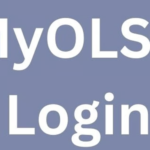In the growing business world, no financial institution can afford the economic loss and reputational damage. If the business is involved in money laundering, terrorist financing, tax evasion, or corruption, it can significantly impact the financial institution’s revenue and operations. During merchant onboarding, conducting due diligence is essential. This involves thoroughly investigating the data and documents to assess the merchant’s legal status. Checking the legal status reveals the company’s involvement in illicit funding or suspicious activities. It helps financial institutions to onboard legitimate companies with reduced risks.
What is Merchant Onboarding?
Merchant onboarding involves opening a business account with a financial institution to conduct transactions. If a bank onboards an illegal merchant, it may face threats of fraud and hefty fines. Third-party due diligence is essential for banks when opening merchant accounts to mitigate financial risks. The merchant onboarding checklist includes financial statements, business registration documents, tax identification numbers, licenses and permits, ownership information, payment processing history, and website and online presence. Analyzing the financial status of the business through documents ensures no payment delays or fraud.
Merchant Onboarding Process
Verification is the primary requirement for opening an account with the merchant. In the merchant onboarding process, financial institutions must collect the data and screen it against databases. The whole process of merchant onboarding is discussed below:
-
Data and Documents Collection
The merchant data, including its name, physical address, mailing address, registration number, and contact number, are collected. The documents, including proof of address, bank statement, income statement, balance sheet, article of incorporation, and tax record are collected. Additionally, the documents of the beneficial owners of the business relevant to the industry are collected.
-
Documents Screening
In the second phase of verification, all the collected documents are checked for cross reference to the databases. The screening of the documents is done by experts against official databases of the government and legal bodies. This helps to verify legal third parties and detect the fake invoices.
-
UBO Verification
UBO refers to the ultimate beneficial owner of the company holding at least 25% of the company’s shares. A UBO has an effective role in a company’s financing and decision making, therefore, its identification is necessary. For UBO verification, the name, address, contact number and photocopies of passport id and driving license are collected. The UBO documents specific to industry are collected and screened to verify its legal status.
-
AML Screening
While merchant onboarding, its involvement in money laundering is a threat to financial institutions. Business involvement in money laundering results in severe legal consequences such as sanctions, hefty fines, and sentences. For this reason, anti-money laundering AML checks are applied to companies to assess the risk of financial crimes. A business that complies with AML regulations is legitimate to open an account in financial institutions.
-
Enhanced Due Diligence
Screening of the merchant is not a one-time process to avoid and monitor financial risks. While dealing with merchants, enhanced due diligence is required. Enhanced due diligence is the constant monitoring of the transactions of the merchant to detect suspicious transfers. It ensures smooth financing in the business dealings.
Challenges to Merchant Onboarding
There are a few challenges that an organization faces in the merchant onboarding process,
-
Money Laundering
If a third party is involved in money laundering, it badly affects the financing and reputation of the financial institutions. The financial institution must apply AML checks over business to avoid such risks.
-
Black Money History
If the business has a black money history or criminal record, it is risky to onboard. Onboarding such a business is exposed to risk for the whole time. Therefore, enhanced due diligence is required in dealing with such high-risk profiles.
-
Shell Companies
For financial institutions, it is challenging to verify shell companies. Shell companies have privacy policies to hide details of beneficial owners. The money launderers hide their names in shell companies and are encouraged to do business there. The less chance to investigate the criminal name assists financial crimes. When opening an account with a shell company, a financial institution must go through a rigid screening of merchant information.
Merchant Onboarding Solutions
Merchant onboarding is the process of opening a business account after a detailed inspection. If the financial institution opens the merchant account without verification, it leads to severe consequences. At the same time, keeping in view financial challenges, financial institutions must rely on merchant due diligence. There are professional business due diligence service providers which help to assess the legal status. The expert collects and screens the data against their extensive databases. Once the merchant passes the verification process, it is legitimate to onboard. The financial institutions also find help in identifying the potential risks and assessing the level of risks.


